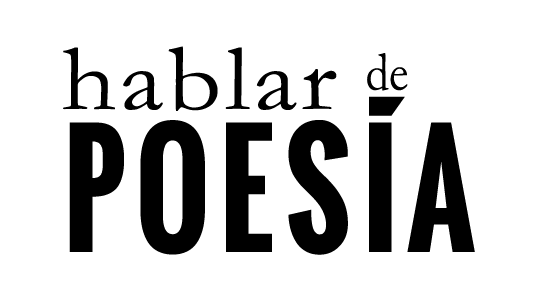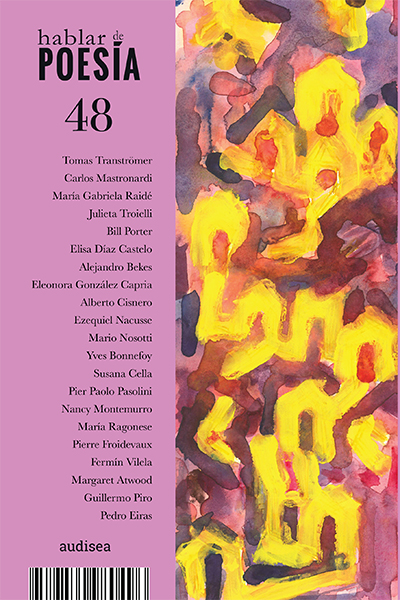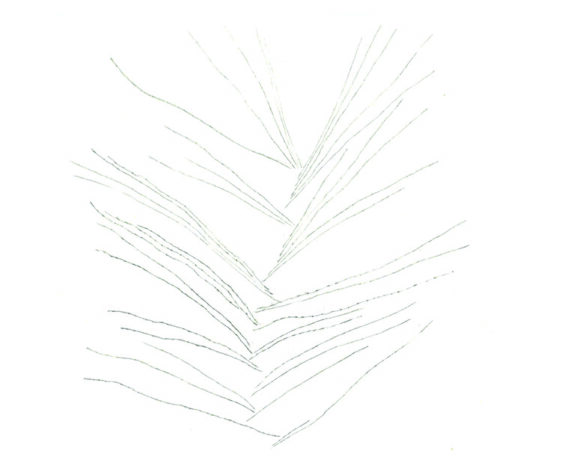En el número 45 en papel de Hablar de Poesía (agosto 2022) se publicó un artículo de Hernán Bravo Varela que se llama “La pequeña ignorancia” y consiste en una presentación general de la poesía de Wallace Stevens y la traducción de tres poemas: “Domingo por la mañana”, “El sitio de los solitarios”, “La idea de orden en Key West”.
En esta entrada compartimos esa versión del poema “La idea de orden en Key West”, acompañándolo del poema en inglés y un link donde puede escucharse al mismo Wallace Stevens leyendo el poema:
WALLACE STEVENS – LA IDEA DE ORDEN EN KEY WEST
Traducción de Hernán Bravo Varela
Ella cantaba más allá del genio
del mar. El agua nunca devino mente o voz,
como un cuerpo de veras cuerpo que sacudiese
sus mangas ya vacías. Su meneo mimético
lanzó un clamor constante, lo causaba
constantemente; y no era nuestro aunque lo entendimos,
inhumano, desde el océano auténtico.
No era máscara el mar; ella, tampoco.
Canto y agua no eran un sonido mezclado,
aunque ella cantase lo mismo que ella oía,
pues el canto fue dicho palabra por palabra.
Puede que se agitase en sus fraseos
el agua que tritura y el viento que jadea.
Sin embargo era ella, y no el mar, lo que oímos.
Pues ella era la artífice del canto que cantaba.
Encapotado siempre, el mar, de gesto trágico,
no era sino un sitio que ella recorría
para cantar. ¿De quién es este espíritu?,
dijimos, pues sabíamos que era el que buscábamos,
que había que preguntarlo mientras ella cantaba.
Si solo hubiera sido la oscura voz del mar
la que se alzó —incluso coloreada por olas—;
o la voz exterior del cielo y de la nube,
del coral sumergido y amurallado de agua,
aunque claro, sería un aire hondo,
el discurso agitado del aire, un veraniego
sonido repetido un verano sin fin,
sonido a secas. Pero fue mucho más,
más que la voz de ella y de nosotros, entre
las vanas zambullidas de las aguas y el viento,
las distancias teatrales, las estatuas de bronce
apiladas en altos horizontes, atmósferas
montañosas de cielo y mar.
La voz
de ella agudizó el cielo evanescente.
Ella medía su soledad por hora.
Ella era la única artífice del mundo
en que, además, cantaba. Cuando lo hacía, el mar,
independientemente de su yo, se volvía
el yo de su canción, pues ella era su artífice.
Nosotros, contemplando su caminar a solas,
supimos que ella nunca había tenido un mundo
excepto el que cantaba y que, al cantar, hacía.
Ramón Fernández, dime, si lo sabes,
por qué al cesar el canto y al volvernos
hacia el pueblo, por qué las luces vítreas,
las luces en los barcos pesqueros allí anclados,
al descender la noche que se inclinó en el aire,
dominaron la noche, seccionaron el mar,
fijando engalanadas zonas y ardientes polos,
organizando, ahondando, hechizando la noche.
Oh bendito furor del orden, pálido
Ramón, furor de artífice por ordenar palabras
del mar, de los fragantes portales, tenuemente
estrellados, y nuestras, y de nuestros orígenes,
en fronteras fantasma, en sonidos más vivos.
THE IDEA OF ORDER AT KEY WEST
She sang beyond the genius of the sea.
The water never formed to mind or voice,
Like a body wholly body, fluttering
Its empty sleeves; and yet its mimic motion
Made constant cry, caused constantly a cry,
That was not ours although we understood,
Inhuman, of the veritable ocean.
The sea was not a mask. No more was she.
The song and water were not medleyed sound
Even if what she sang was what she heard,
Since what she sang was uttered word by word.
It may be that in all her phrases stirred
The grinding water and the gasping wind;
But it was she and not the sea we heard.
For she was the maker of the song she sang.
The ever-hooded, tragic-gestured sea
Was merely a place by which she walked to sing.
Whose spirit is this? we said, because we knew
It was the spirit that we sought and knew
That we should ask this often as she sang.
If it was only the dark voice of the sea
That rose, or even colored by many waves;
If it was only the outer voice of sky
And cloud, of the sunken coral water-walled,
However clear, it would have been deep air,
The heaving speech of air, a summer sound
Repeated in a summer without end
And sound alone. But it was more than that,
More even than her voice, and ours, among
The meaningless plungings of water and the wind,
Theatrical distances, bronze shadows heaped
On high horizons, mountainous atmospheres
Of sky and sea.
It was her voice that made
The sky acutest at its vanishing.
She measured to the hour its solitude.
She was the single artificer of the world
In which she sang. And when she sang, the sea,
Whatever self it had, became the self
That was her song, for she was the maker. Then we,
As we beheld her striding there alone,
Knew that there never was a world for her
Except the one she sang and, singing, made.
Ramon Fernandez, tell me, if you know,
Why, when the singing ended and we turned
Toward the town, tell why the glassy lights,
The lights in the fishing boats at anchor there,
As the night descended, tilting in the air,
Mastered the night and portioned out the sea,
Fixing emblazoned zones and fiery poles,
Arranging, deepening, enchanting night.
Oh! Blessed rage for order, pale Ramon,
The maker’s rage to order words of the sea,
Words of the fragrant portals, dimly-starred,
And of ourselves and of our origins,
In ghostlier demarcations, keener sounds.






